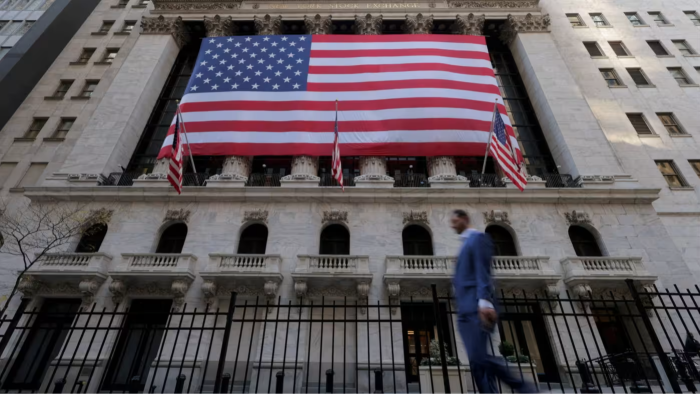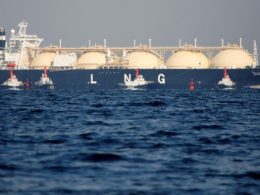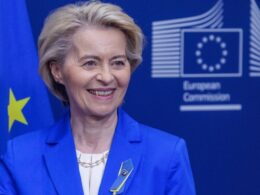This article is an on-site version of our FirstFT newsletter. Subscribers can sign up to our Asia, Europe/Africa or Americas edition to get the newsletter delivered every weekday morning. Explore all of our newsletters here
Good morning and happy New Year’s Eve. After a short break, FirstFT Asia will be back in your inbox on Friday. In today’s newsletter:
-
Record outflows from active funds
-
Turkey tries to revive peace process with Kurds
-
What we learned from the ‘year of democracy’
There’s a huge shift in investment strategy under way.
This year, investors pulled a record $450bn out of actively managed stock funds, instead favouring cheaper index-tracking investments. The outflows from stockpicking mutual funds eclipse last year’s previous high of $413bn, according to data from EPFR.
Traditional stockpicking funds have struggled to justify their relatively high fees in recent years, with their performance lagging the gains for Wall Street indices powered by big technology stocks. The exodus from active strategies has gathered pace as older investors cash out and younger savers turn to cheaper passive strategies.
“People need to invest to retire and at some point they have to withdraw,” said Adam Sabban, a senior research analyst at Morningstar. “The investor base for active equity funds skews older. New dollars are much more likely to make their way into an index ETF than an active mutual fund.” The trend is reshaping the asset management industry.
Here’s what else I’m keeping tabs on today:
-
Market closures: Financial markets in Asia and around the world will be closed or have limited hours today for the New Year’s Eve holiday.
-
Economic data: Consumer price index figures will be released in South Korea and Sri Lanka.
-
UN Security Council: Non-permanent members Ecuador, Japan, Malta, Mozambique and Switzerland end their two-year terms today.
Five more top stories
1. South Korea’s acting president Choi Sang-mok has ordered emergency safety checks on the country’s airline operation system as investigators examine why a Boeing 737-800 operated by Jeju Air crashed on Sunday, killing all but two of the 181 people on board. Yesterday a Jeju Air B737-800 aircraft returned to the airport because of a warning about its landing gear; it was later found to be working well, the airline said.
2. Gautam Adani’s conglomerate will divest its 44 per cent stake in a joint venture food business with Singapore’s Wilmar International weeks after the US indicted the Indian billionaire and company executives over an alleged multimillion-dollar bribery scheme. The roughly $2bn raised through the sale will ease funding pressures the Indian conglomerate has faced since the US charges, said a person familiar with the matter.
3. Ukrainian President Volodymyr Zelenskyy has sent his foreign and agriculture ministers to meet Syria’s new leaders in a diplomatic drive to benefit from Moscow’s loss of influence following the overthrow of Russian ally Bashar al-Assad. Zelenskyy said Ukraine “can help restore stability to Syria after many years of Russian intervention, and this will definitely help us restore peace for ourselves”.
4. Pakistan has scrapped plans for a new tax on banks’ profits on government debt, following a backlash from lenders days before a critical deadline. The proposed levy was meant to boost the country’s sluggish economy by encouraging banks to lend more to the private sector. Instead, the government approved a new plan to raise the overall income tax on banks to 44 per cent.
5. Defaults on US credit card loans have hit the highest level since the wake of the 2008 financial crisis, in a sign that lower-income consumers’ financial health is waning after years of high inflation. Credit card lenders wrote off $46bn in seriously delinquent loan balances in the first nine months of 2024, up 50 per cent from the same period in the previous year.
News in-depth
Turkey has new reason to hope for a breakthrough in increasingly urgent efforts to end a four-decade insurgency by Kurdish militants. It comes after the jailed founder of the banned Kurdistan Workers party, Abdullah Öcalan, said he was willing to support a “new paradigm” aimed at a settlement. Reporter Ayla Jean Yackley explains the situation here.
We’re also reading and watching . . .
Charts of the year
With more than one-and-a-half billion ballots cast in elections across 73 countries, 2024 offered a rare opportunity to take the social and political temperature of almost half of the world’s population. Here’s what the “year of democracy” taught us, in six charts.
The stories you commented on most in 2024
You had a lot of thoughts about the news that wealthy foreigners were stepping up plans to leave UK as taxes increased. More than 2,500 readers left comments on the June story. Here’s a selection:
If your only motivation for being in Britain is you want to pay less tax and a when a democratically elected government asks you to do pay slightly more you have a tantrum and leave then good riddance. Enjoy being a citizen of nowhere. — Reader Tony, Islington
It is rich people that pay the vast majority of taxes. If they leave the country and pay nothing, everyone else either has to pay more or face big cuts in government spending. Policies driven by petty jealousies and envy end up costing those who are envious the most. — Reader Androcydes
“I’ve worked my backside off for 25 years, having worked my butt off all through school. I’ve saved enough to retire age 49. You can be jealous, but I went to state school, started with nowt and my grandad was a builder. I am now going to move to Portugal (Golden visa for €500k), and whilst there I will be avoiding all this nonsense and paying 10 per cent tax. Plus getting a tan. — Reader 8
Thank you for reading and remember you can add FirstFT to myFT. You can also elect to receive a FirstFT push notification every morning on the app. Send your recommendations and feedback to firstft@ft.com
Source link










